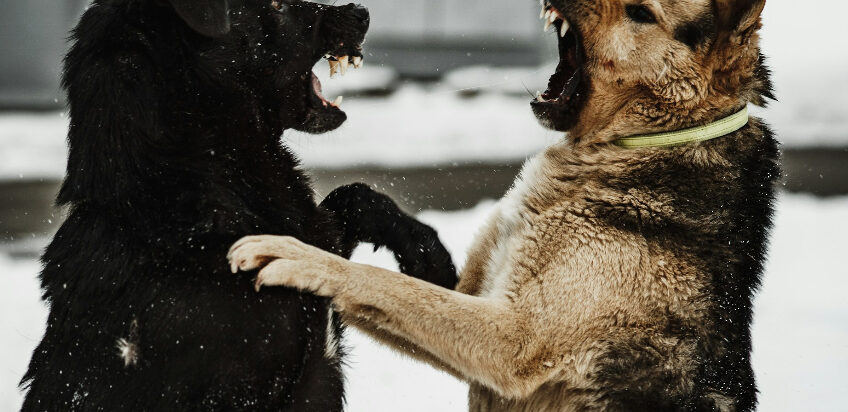Dog bites can be traumatic, resulting in physical injuries, emotional distress, and expensive medical treatment. While many people assume that a dog owner is automatically responsible for any bite, the reality is more nuanced—especially when it comes to where the incident occurs. In New Jersey, liability for a dog bite can depend on whether the attack happened on public property or private property, and whether the victim had the legal right to be there. Understanding how state law distinguishes between these scenarios is essential for anyone seeking justice after a dog bite.
New Jersey’s Strict Liability Rule
New Jersey follows a strict liability law for dog bites, which means that dog owners are held responsible for injuries caused by their pets—regardless of the animal’s prior behavior or the owner’s knowledge of aggressiveness. Under N.J. Stat. Ann. §4:19-16, a dog owner is liable if:
- The dog bites someone, and
- The victim was lawfully on public or private property at the time.
This rule differs from the one-bite rule used in some other states, where owners are only liable if they knew their dog was dangerous. In New Jersey, even a dog with no history of aggression can trigger full liability for the owner.
Dog Bites on Public Property
If a dog attacks someone on public property—such as a sidewalk, street, park, or beach—the case is usually straightforward. The victim is presumed to be lawfully present in these areas, and therefore, the owner is generally responsible for all resulting damages.
For example, if a pedestrian is bitten while walking in a public park, the dog owner cannot argue that the victim was trespassing or provoking the animal simply by being there. In such cases, victims can pursue compensation for:
- Medical expenses and future treatment costs,
- Lost wages,
- Pain and suffering, and
- Permanent scarring or disability.
However, if the victim provoked the dog—by teasing, hitting, or threatening it—the owner may argue comparative negligence, which could reduce the compensation awarded.
Dog Bites on Private Property
Dog bites that occur on private property can be more complicated. The key question is whether the victim was lawfully present at the time of the attack.
Those lawfully on private property include:
- Guests or visitors invited by the owner,
- Postal workers or delivery personnel performing their duties,
- Utility workers or contractors with permission to enter.
In these cases, the strict liability rule still applies—the dog owner is fully responsible for the bite.
However, if the victim was trespassing or unlawfully on the property, the owner may not be liable under strict liability. For example, if someone climbs over a fence into a private yard without permission and is bitten, the law generally protects the dog owner. Still, trespassers may sometimes pursue a negligence claim if the owner acted recklessly, such as intentionally letting a known dangerous dog roam free.
Landlord and Property Owner Liability
In certain cases, property owners or landlords may also share liability. If a landlord knew that a tenant’s dog was dangerous and failed to take reasonable precautions—such as enforcing lease rules or addressing complaints—they might be held partially responsible for an attack on shared property, like an apartment complex courtyard or hallway.
Proving a Dog Bite Claim
To succeed in a dog bite case in New Jersey, the victim must show:
- The defendant owned the dog.
- The bite caused injury.
- The victim was lawfully on the property when the attack occurred.
Evidence such as medical records, photographs of injuries, eyewitness statements, and animal control reports can help establish a strong case.
Why Legal Representation Matters
Dog bite claims can involve multiple parties, insurance companies, and disputes about where and how the attack occurred. An experienced New Jersey personal injury attorney can evaluate the case, gather crucial evidence, and negotiate with insurers to secure full compensation. They can also address unique factors, such as homeowner’s insurance coverage or shared liability between the owner and landlord.
Conclusion
Whether a dog bite occurs on public or private property, New Jersey law strongly favors protecting victims. Owners are held to strict liability when their dogs attack lawful visitors or passersby. However, determining “lawful presence” and proving damages often requires legal expertise. With proper representation, victims can hold negligent owners accountable, recover fair compensation, and help prevent future attacks by promoting responsible pet ownership.
